CV CLINIC
Your CV outlines your career and maps your career path to date. You need to spend time perfecting how it looks and reads. Here are some considerations when creating your CV and the team at RecruitmentPlus will assist you to create your CV before we present you to clients.
Profile
The profile should make the employer want to meet you. It should be short enough to read quickly and concise enough to capture your skills and experience in a short paragraph.
Order
Most people list their most recent employment first and the recruiter will probably appreciate you following this standard. Of course, you may want to be different or feel that your career to date is best represented in chronological order where you start with your first job at the start of the CV. It is your call although at RecruitmentPlus we find it easier to work backwards as most recruiting systems are set up in this way also.
Key Information
Endeavour to map out your CV so the reader can easily navigate the document. Three key pieces of information are titles, company names and dates of employment. Align all 3 so it is easy to follow and read. We appreciate that everything may not fit neatly and we all have different stories to tell. Unfortunately people don’t have that much time to read your CV when they receive it first and may base their first decision on your CV and how it looks, does it contain some key words, is it easy to follow and is it worth another look. This may all happen in 15 seconds or so and it is important that the key information is mapped out clearly and concisely.
Personal Details
You should list your home address (where you currently reside) so the recruiter or organisation can write to you if that is the way they correspond with applicants. However, in most cases, your email address and mobile phone number are most important and of course make sure both are correct. If you have a landline you can list it also. You may consider also listing a hyperlink to your LinkedIn profile.
1 Page or 2 Pages or more
This is very much up to you. It is your career and no one knows it like you do. Sometimes less is more. Yet you want to give as much information as possible.
Naming Referees
There are arguments for and against naming referees on a CV. Many people state simply that “References are available on Request”. By following this method you have more room for information. Yet listing the referees may be a subliminal message to the recruiter that these people will provide really good references and listing their names may be perceived in a positive way. Having said that, be careful with including your referees’ contact details on a CV as they may not wish to have their details shared so freely.
The final note on references is that when you do share details with the recruiter, ensure they are correct and try and make it easy for the recruiter to get the information they are looking for as quickly as possible.
Technical Skills
An understanding of Microsoft Office is almost compulsory for all roles and you should indicate your expertise level and if you are an advanced user, intermediate, a beginner or somewhere in between. It is important to have skills in Outlook, Word and Excel.
If you are not an advanced user with Word or Excel, it does increase your marketability to improve these skills. Some people increase their capacity by using both applications in their spare time and improving their skills on their own. You can get many free tutorials by using Google and YouTube.
Education
If you’re entering the job market then there is justification for listing your educational accomplishments at the beginning of the CV. If you’ve been working for at least 12 months then a company may be more interested in your work history rather than the educational path you’ve taken.
Training
Readers are interested in your training but list it in such a way that it is easy to read. The training should be relevant to the role you are applying for and be selective about the training you list. You may be tempted to show you’ve had a lot of training but make it easy for the reader as they don’t want to miss out on the key training.
Qualification & Licences
You may have professional qualifications or licenses and it is important to list these clearly on the CV. They are generally best positioned with or next to your educational details.
Hobbies & Interests
It is hard to know whether to include them or not and they are appearing less frequently on CV’s in recent times. Yet they may say a lot about a person and demonstrate a wide variety of interests and high energy.
Voluntary Experience
Some voluntary organisations provide excellent training and spending time with them may be relevant to the role you are applying for through RecruitmentPlus.


